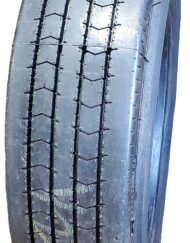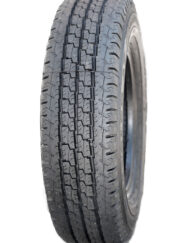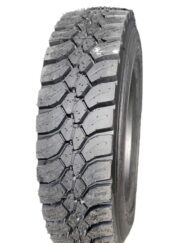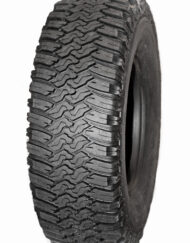Get the Lead Out: Why Lead-free Wheel Weights are Great
While we’re on the topic of wheel balancing, now is as good a time as any to discuss the benefits of using lead-free alternatives when balancing your wheels.
What’s Wrong with Lead Wheel Weights?
Around here, we believe in the importance of being green and finding the right wheel weights is yet another way to ensure that your Tire Recappers recaps are the greenest tires on the road. Loyal readers already know that there are plenty of reasons to use retread tires, and while we’re happy to manufacture a high-quality, affordable product we’re really happy that we’re doing our part to preserve our environment. Retread tires keep toxic, non-biodegradable materials out of our landfills while simultaneously conserving nonrenewable resources. Retreads save the nation millions of gallons of oil each year, reduces emissions, and minimize the accumulation of harmful waste.
Tire Review writes: “Why the move away from lead? According to the Illinois EPA’s Becky Jayne, lead is toxic to humans, fish and wildlife. When lead wheel weights fall off vehicles onto roadways and are degraded over time, they emit lead dust, which washes away and settles in soil and rivers. The federal EPA estimates that roughly 2,000 tons of lead falls off vehicles annually in the U.S.”
Lead Wheel Weight Quick Facts
- There are 200 million autos and light trucks on the nation’s roadways.
- Sixteen million new autos are produced annually in the United States.
- An average of 4.5 ounces of lead is clipped to the wheel rims of every automobile in the United States.
- Approximately 50 million pounds of lead is used annually to produce tire weights worldwide in autos and light trucks.
- 75% is recycled by secondary lead smelters.
- 25% (or 12.5 million pounds annually) is uncontrolled or unmanaged in the environment.
- 13% of the 12.5 million pounds (1.6 million pounds) is lost when wheel weights fall off during normal driving conditions.
- 87% of the 12.5 million pounds (10.9 million pounds) is sold or given to hobbyists for recreational purposes.
(Source: EPA’s Web Archive)
The Eco Center notes that: “Lead is one of the EPA’s 31 Priority Chemicals targeted for reduction. Lead wheel weights are clipped to tire rims to balance tires on automobiles/trucks/ATV’s. The weight, price, and malleability have made lead the long-time preferred choice for this purpose. However, wheel weights sometimes fall from wheels under rough driving. These ‘lost’ wheel weights are eventually abraded into lead dust which can contaminate surrounding soils and adjacent waterways. There is also an environmental concern when cars are sent to metal scrap processing facilities. Alternatives to lead wheel weights are available and using an alternative not only protects the environment but also protects employees from lead exposure. Use of non-lead wheel weights can provide repair shops and tire installations an opportunity to promote themselves as using greener alternatives to lead.”
To protect our health and the health of our nation’s waterways, we encourage our customers to make sure their mechanics use non-lead wheel weight alternatives.
Non-Lead Wheel Weight Alternatives
What’s better than lead, you ask? Now that 12 states have adopted policies regarding the use of lead, there’s a clear trend towards finding affordable and environmentally safe alternatives to lead wheel weights. Although lead weights are still legal throughout most of the country, many major OEMs and larger service centers, like Bridgestone or Middle Tennessee’s Gateway Tire & Service, for example, have already made the switch to zinc, steel, or composite weights.
We know tires! To learn more, contact Tire Recappers today.




